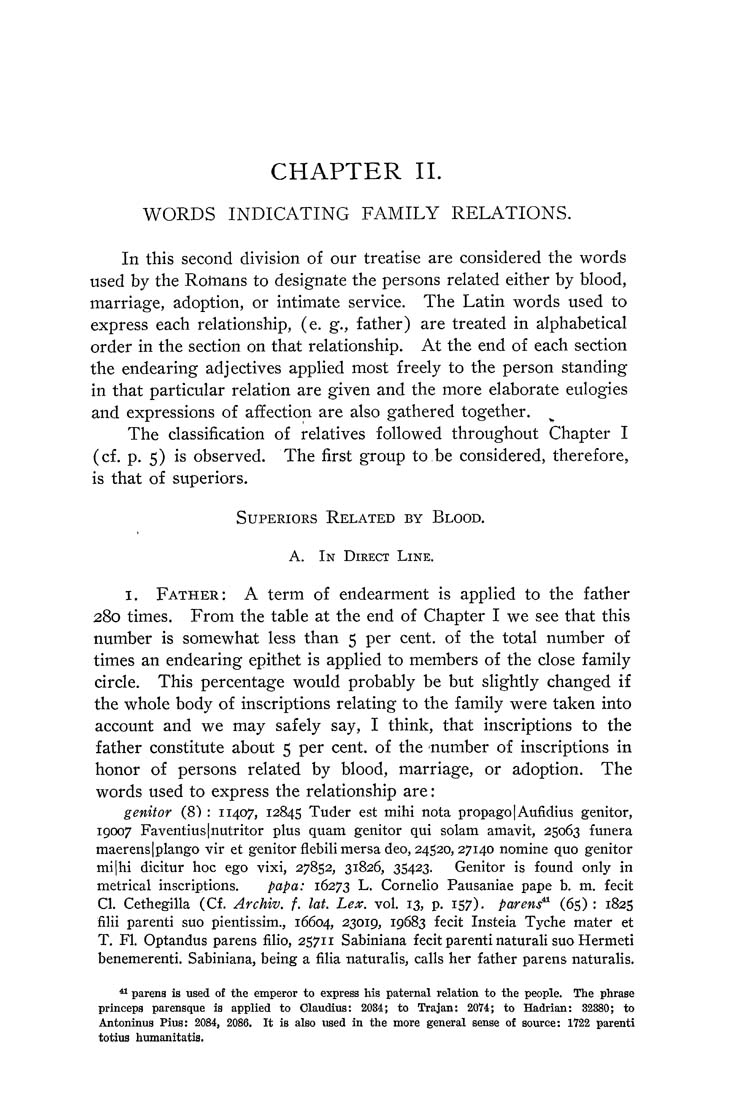CHAPTER II.
WORDS INDICATING FAMILY RELATIONS.
In this second division of our treatise are considered the words
used by the Roinans to designate the persons related either by blood,
marriage, adoption, or intimate service. The Latin words used to
express each relationship, (e. g., father) are treated in alphabetical
order in the section on that relationship. At the end of each section
the endearing adjectives applied most freely to the person standing
in that particular relation are given and the more elaborate eulogies
and expressions of affection are also gathered together.
The classification of relatives followed throughout Chapter I
(cf. p. 5) is observed. The first group to be considered, therefore,
is that of superiors.
Superiors Related by Blood.
A. In Direct Line.
I. Father: A term of endearment is applied to the father
280 times. From the table at the end of Chapter I we see that this
number is somewhat less than 5 per cent, of the total number of
times an endearing epithet is applied to members of the close family
circle. This percentage would probably be but sHghtly changed if
the whole body of inscriptions relating to the family were taken into
account and we may safely say, I think, that inscriptions to the
father constitute about 5 per cent, of the number of inscriptions in
honor of persons related by blood, marriage, or adoption. The
words used to express the relationship are:
genitor (8) : 11407, 12845 Tuder est mihi nota propago|Aufidius genitor,
19007 Faventius I nutritor plus quam genitor qui solam amavit, 25063 funera
maerens|plango vir et genitor flebili mersa deo, 24520, 27140 nomine quo genitor
mi|hi dicitur hoc ego vixi, 27852, 31826, 35423. Genitor is found only in
metrical inscriptions. papa: 16273 L. Cornelio Pausaniae pape b. m. fecit
CI. Cethegilla (Cf. Archiv, f. lat. Lex. vol. 13, p. 157). parens^ (65) : 1825
filii parenti suo pientissim., 16604, 23019, 19683 fecit Insteia Tyche mater et
T. Fl. Optandus parens filio, 25711 Sabiniana fecit parenti naturali suo Hermeti
benemerenti. Sabiniana, being a filia naturalis, calls her father parens naturalis.
^ parens is used of the emperor to express his paternal relation to the people. The phrase
princeps parensque is applied to Claudius: 2034; to Trajan: 2074; to Hadrian: 32380; to
Antoninus Pius: 2084, 2086. It is also used in the more general sense of source: 1722 parenti
totius humanitatis.
|








